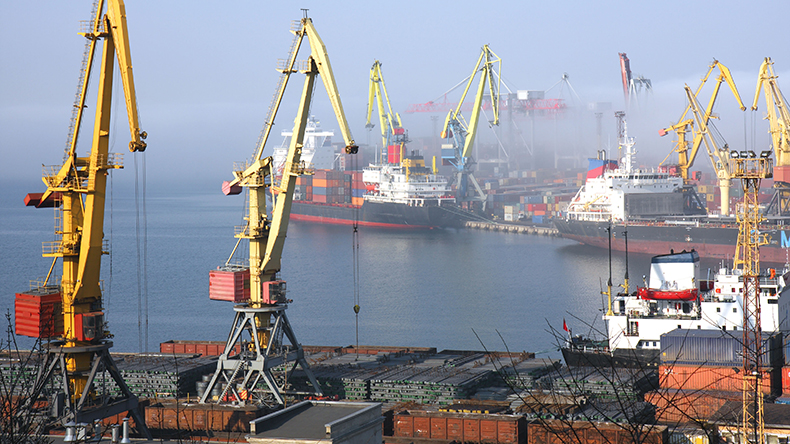Will invasion of Ukraine activate marine war exclusions?
By Jean Koh and Alex Kemp, HFW
Courts have been reluctant to adopt narrow or technical definitions of war in contracts, giving the word its normal and popular meaning
Matters have been moving at pace in Ukraine in recent weeks, culminating in Russia’s invasion yesterday.
While the conflict does not, at the moment, directly involve the US or other Western powers, there has certainly already been support behind the scenes and it is unknown how matters may develop.
A direct declaration of war by a Western power against Russia is unlikely, but there are many examples over the years of countries going to war without a formal declaration.
If the situation continues to deteriorate, greater involvement of the UN, Nato or a coalition of Western forces acting outside either may well be possible.
If this were to happen, what would it mean for marine insurance contracts?
War exclusions
Protection and indemnity (P&I) insurance offered by the International Group and the standard hull and machinery insurance available in the London market both exclude losses arising from war risks. In practice, assureds buy back additional war risk insurance for their liability and property risks.
Hull and machinery policies also often contain the Institute notice of cancellation automatic termination of cover war and nuclear, which is an automatic termination provision for an outbreak of war between the UK, America, France, Russia or China.
The buybacks available for P&I war risks cover, either from the International Group or the London market, likewise contain automatic termination provisions following the outbreak of war between any of the permanent five on the UN security council. Buybacks for property insurance have the same provisions.
War cancellation clauses are also common in time charterparties (in standard forms or rider clauses) where parties are given the option to cancel the charterparty in the event of the outbreak of war between certain countries, often including Russia, the US and the UK.
This could be a powerful negotiating tool for owners that wish to refuse to call at Ukrainian or Russian ports (or indeed any other ports for that matter) and perhaps even a “get out” to an unprofitable charterparty.
Declaration of war
The key question is: has there been an outbreak of war (declared or otherwise) between Russia and the US or any other major powers?
This will depend on precisely what steps are taken by the US, the UK and other nations. There are a range of options that may be pursued by the US, not all of which would be considered war.
First, the US and/or other nations could seek to deploy military assets with the backing of the UN. However, the UN security Council normally makes resolutions to provide peacekeeping missions rather than authorise war.
Given Russia is a permanent member of the security council and can, therefore, veto motions, it is highly unlikely the body will be able to act in Ukraine.
Second, the major powers could seek the support and backing of Nato, which has previously deployed military resources in a more conventional military role.
When member states dedicate personnel and supplies to Nato, those resources are deployed as Nato forces, not as forces of the country that provided them.
Nato operations of this type could well be constitute war, but would be undertaken as Nato and, as such, would unlikely be considered a war between the US/UK/France and Russia.
Even if Nato operations could be considered a war between the US and Russia, it seems unlikely Nato will engage in direct military conflict with Russia.
Nato was established as a military alliance with the purpose of establishing collective defence among its members. It will not automatically commit to deploying troops to non-member states.
Third, the US could also choose to act outside the UN or Nato, with or without a coalition of supporting partners such as the UK or France.
This is an option that has been adopted by the US in the past. After Afghanistan and Iraq, it is possible its appetite for such conflicts has dwindled.
There will almost certainly already be US or allied forces operating in Ukraine already in support, training or clandestine capacities. If these forces met the Russian military, a conflict may ensue and have the potential to escalate.
Contract interpretation
From an English law perspective, courts have been reluctant to adopt narrow or technical definitions of war.
If the parties include war in their contract and provide certain consequences follow, war will be given its normal and popular meaning.
The English courts have expressly rejected any formal test or definition of war and rejected the suggestion a war must be recognised by the UK Foreign Office.
For example, the Sino-Japanese War of 1937 (where no declaration of war was made) was considered a war, as were the Spanish Civil War, Korean War, Falklands War and periods of the first Gulf War. The September 11, 2001 al-Qaeda attacks were not.
It is not impossible that matters deteriorate in such a way in the coming weeks giving rise to an outbreak of war for the purposes of insurance contracts and charterparties, resulting in automatic termination of insurance policies and opening up options for parties to cancel their charterparties.
Jean Koh is head of dry shipping and Alex Kemp is a partner specialising in casualty management and crisis response at HFW
This article first appeared in Lloyd’s List, a sister publication of Insurance Day



